Understanding Wikimedia audiences in South Africa to achieve knowledge equity
Methodology
- Online survey
- Survey dates: 14-21 October 2021
- Target audience: Online population
- 1,000 South Africans of colour
- 500 nationally representative sample of South Africans for comparison
Context
There are cultural and country nuances in the South African market that are reflected in the language and data in this report, which should be taken into account when reading the report.
- The term ‘coloured’ in South Africa refers to members of multi-ethnic communities, and is officially regarded as one of the four race groups in the country
- Wikipedia awareness is low in South Africa at a total market level. The data only represents the population of South Africans who are online
- We found that the Black population in South Africa is younger (which reflects country government data) and relatively more tech savvy as compared to their White counterparts
- Members of the Black demographic who responded to this survey generally come from a higher socio-economic background of online users, and therefore don’t reflect the total Black population in South Africa
Key Insights
- Black people feel well represented in media, but not as much on Wikipedia
- There is opportunity to better engage and represent South Africa’s coloured demographic
- There is opportunity to improve on the representation of South Africa’s languages on Wikipedia
- There is an opportunity to increase and improve content about physical & mental health
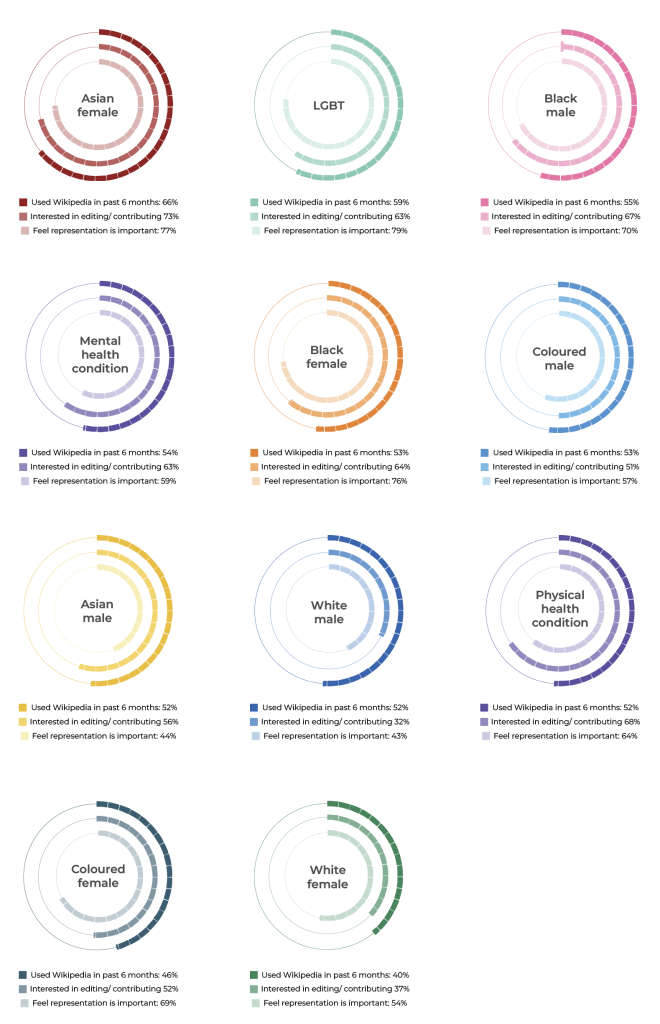
Usage and Awareness
- Coloured men and Asian women are the most aware of Wikipedia
- While Asian women are most likely to use Wikipedia, white and coloured women are less likely to.
- Black people are most likely to use Wikipedia for business, with other groups interested more in history


Perception and Representation
- Wikipedia is seen as not valuing SA specific issues like the AbM (disambiguated as “Abahlali baseMjondolo”) movement, youth unemployment, and black economic empowerment
- Coloured women, LGBTQI+ people and those with health conditions see Wikipedia as having less integrity or empathy, while coloured women and those with health conditions also see Wikipedia as least inclusive
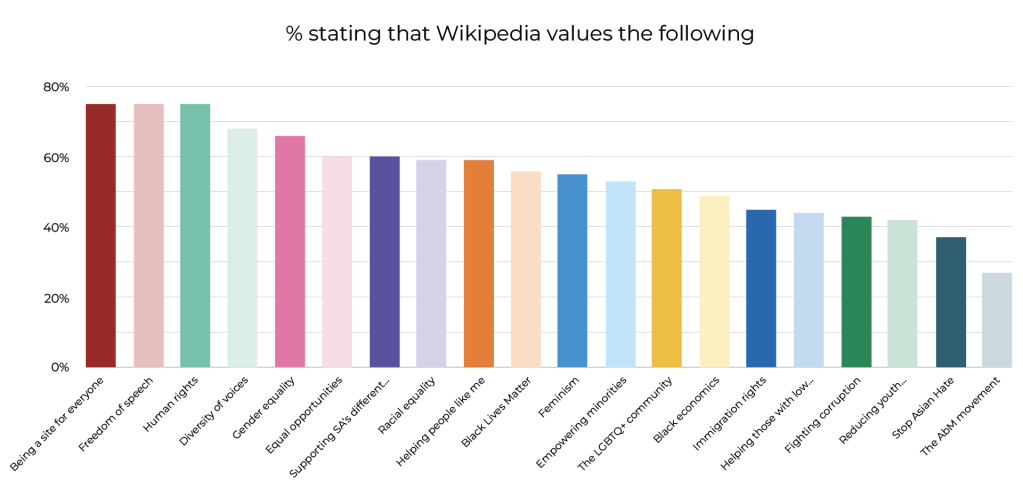
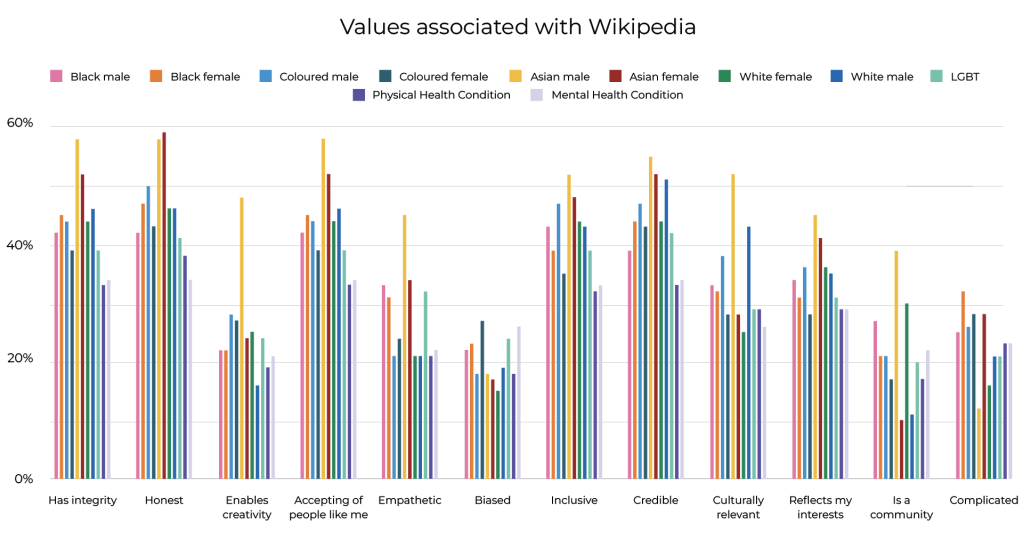
Editing
- Men and those with health conditions most likely to claim have edited, while the members of the white demographic are the least interested in editing
- Coloured people are more interested in editing Wikipedia in order to increase inclusivity & representation
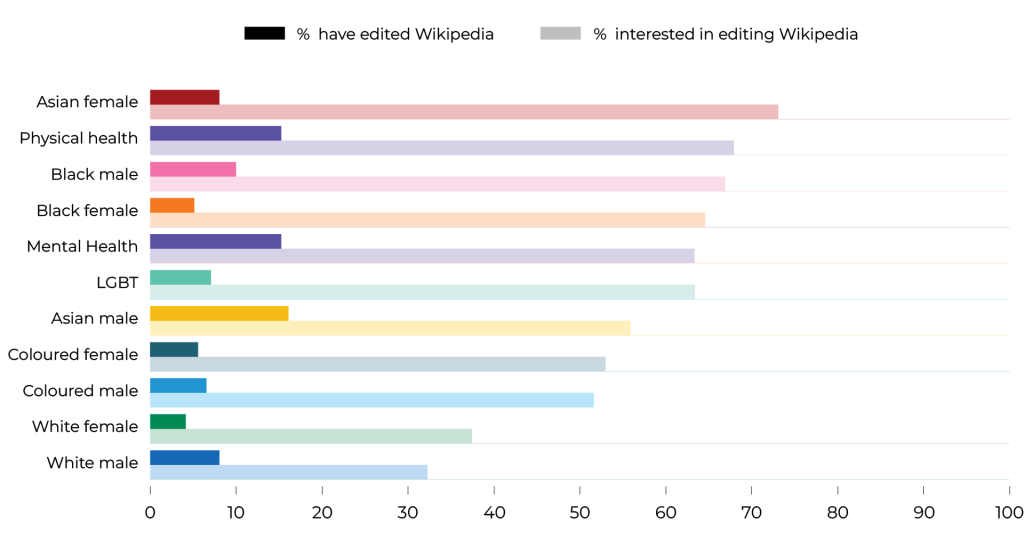
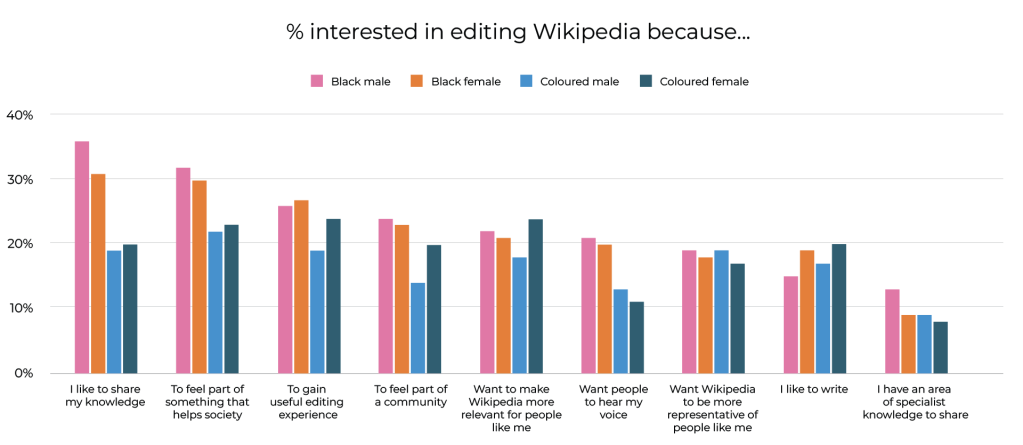
See the complete report
Help us unlock the world’s knowledge.
As a nonprofit, Wikipedia and our related free knowledge projects are powered primarily through donations.
Donate now
Contact us
Follow
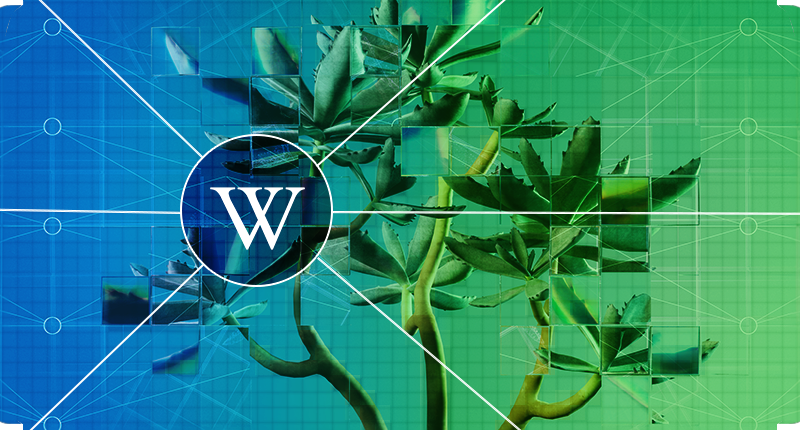
O valor da Wikipédia na era da IA generativa
Se houvesse um sistema de inteligência artificial generativa que pudesse escrever, por conta própria, todas as informações contidas na Wikipédia, seria igual à Wikipédia que temos hoje?

Ahead of UN General Assembly, Wikipedia nonprofit calls on governments to ensure the future internet is shaped by communities for the public interest
21 September 2024, New York USA ― As UN Member States are gathering in New York for the 79th United Nations General Assembly, the Wikimedia Foundation, the nonprofit that hosts Wikipedia and other Wikimedia projects, is calling on governments and the UN to ensure that stakeholders from all sectors can work together in deciding how….